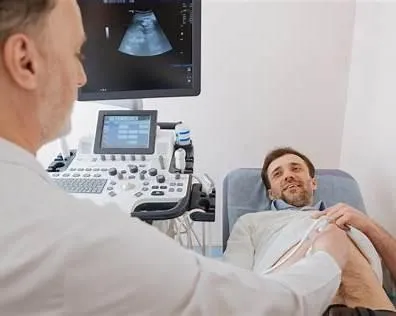
Seeing Is Believing: The Benefits of Ultrasound for Patients and Providers

Why Doctors Recommend Annual Abdominal Ultrasounds After 40
Why Doctors Recommend Annual Abdominal Ultrasounds After 40
Turning 40 is a milestone — and not just because of birthdays and bucket lists. It’s also the age when your body quietly starts changing in ways you may not feel yet. That’s exactly why many doctors now recommend adding an annual abdominal ultrasound to your health routine.
This isn’t fear-mongering. It’s prevention. Most abdominal conditions develop slowly and silently. Ultrasound helps you catch problems early, long before they grow into something serious, painful, or expensive.
Let’s break it down in a way that actually makes sense.
What an Abdominal Ultrasound Checks
Think of this scan as a “look under the hood.” It gives your doctor a real-time picture of:
Liver – fatty liver disease is rising fast after 40
Gallbladder – checks for stones, inflammation, or blockages
Pancreas – early detection matters because symptoms show up late
Kidneys – monitors cysts, stones, and function-related issues
Spleen
Abdominal blood vessels, including the aorta (important for aneurysm screening)

These are areas where issues can grow quietly for years without warning.
Why After 40? Because the Risks Jump — Silently
Here’s where most people underestimate their bodies:
1. Fatty Liver Disease Becomes More Common
It’s now one of the fastest-growing silent conditions. Most people don’t know they have it until it’s severe.
2. Gallstones Increase With Age
Especially for women over 40. Ultrasound catches them before they cause pain.
3. Kidney Issues Start Showing Up
Cysts, reduced function, or stones often appear around this age.
4. Pancreatic Changes Rarely Have Early Symptoms
Ultrasound helps your doctor flag anything unusual early.
5. Family History Matters More Than You Think
If hypertension, diabetes, or high cholesterol run in your family, your abdominal organs carry the impact.
The Scan Is Safe, Painless & Radiation-Free
Ultrasound uses sound waves — not radiation — so it’s one of the safest imaging tests available. No needles. No prep (other than fasting for a few hours). No recovery time.
People walk in and out in under 30 minutes.
The True Benefit: Early Detection Saves Money, Pain & Time
The harsh reality is that most abdominal conditions are cheap and easy to manage when you catch them early. But when they’re ignored, they turn into:
Emergency surgeries
Hospital stays
Long-term medication
Chronic pain
Avoidable stress
A simple yearly scan helps you avoid all that.
Who Should Absolutely Get Checked Every Year?
Doctors strongly recommend annual ultrasounds if you:
Are 40+
Have diabetes, high blood pressure, or high cholesterol
Struggle with sudden weight gain
Have a family history of liver, kidney, or gallbladder disease
Experience bloating or indigestion often
Drink alcohol regularly
Have had abdominal pain before
This isn’t about scaring people. It’s about being smart with your health.
What Your Appointment Looks Like at Atlanta Ultrasound
Your scan includes a full abdominal review that checks the major organs with high-resolution imaging. You get:
A calm, private, comfortable environment
Expert sonographers
Fast results
A clear explanation of what we see
Your health shouldn’t feel confusing — and we make sure it doesn’t.
Final Thought
Reaching 40 doesn’t mean slowing down; it just means being more intentional. An abdominal ultrasound is one of the simplest health decisions you can make to stay ahead of silent problems.
Your body is talking — an annual scan helps you hear it.
